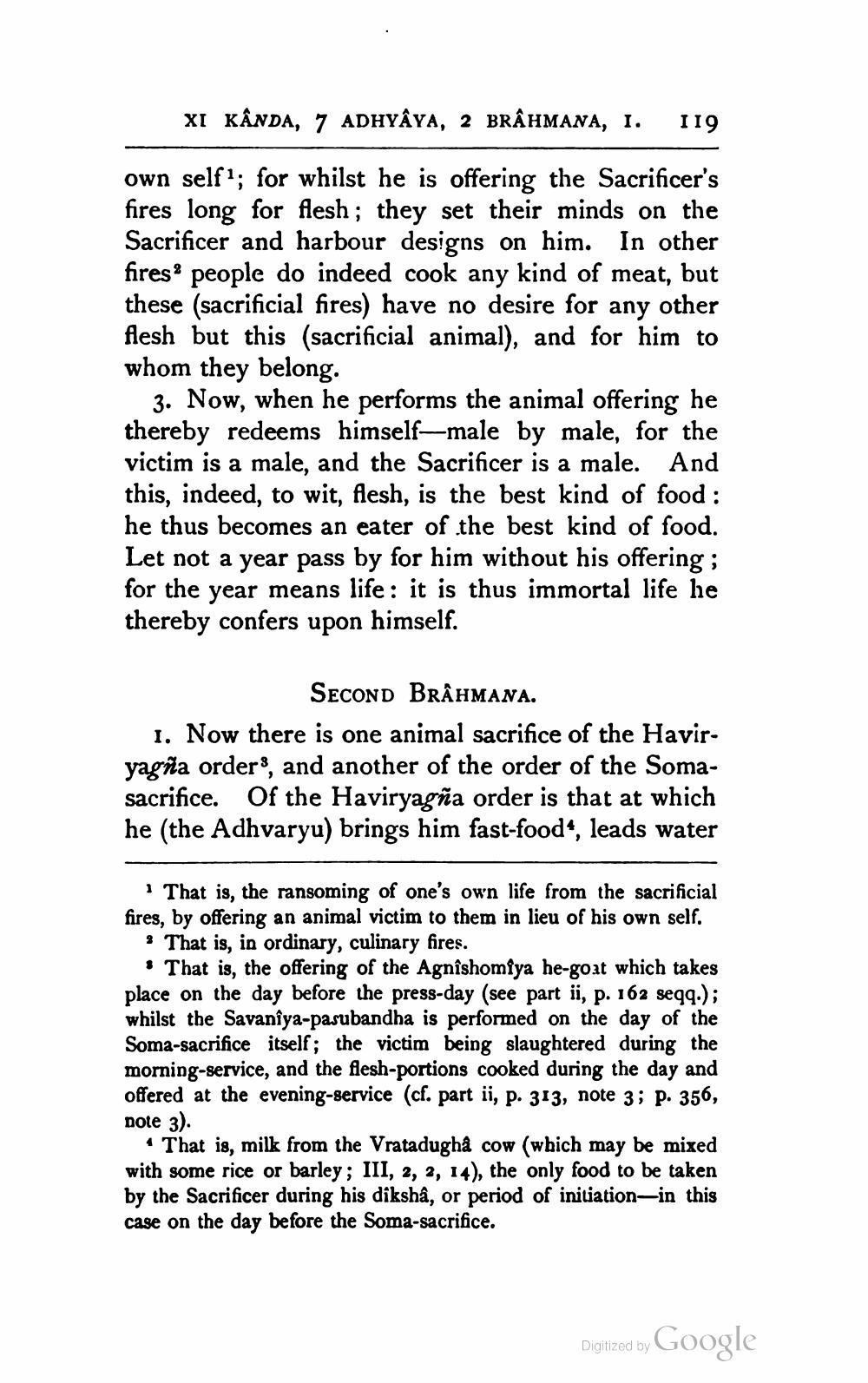________________
XI KÂNDA, 7 ADHYAYA, 2 BRÂHMANA, I.
119
own self1; for whilst he is offering the Sacrificer's fires long for flesh; they set their minds on the Sacrificer and harbour designs on him. In other fires people do indeed cook any kind of meat, but these (sacrificial fires) have no desire for any other flesh but this (sacrificial animal), and for him to whom they belong.
3. Now, when he performs the animal offering he thereby redeems himself—male by male, for the victim is a male, and the Sacrificer is a male. And this, indeed, to wit, flesh, is the best kind of food : he thus becomes an eater of the best kind of food. Let not a year pass by for him without his offering ; for the year means life: it is thus immortal life he thereby confers upon himself.
SECOND BRÂHMANA. 1. Now there is one animal sacrifice of the Haviryagña orders, and another of the order of the Somasacrifice. Of the Haviryagña order is that at which he (the Adhvaryu) brings him fast-food“, leads water
I That is, the ransoming of one's own life from the sacrificial fires, by offering an animal victim to them in lieu of his own self.
. That is, in ordinary, culinary fires.
. That is, the offering of the Agnîshomiya he-goat which takes place on the day before the press-day (see part ii, p. 162 seqq.); whilst the Savanîya-pasubandha is performed on the day of the Soma-sacrifice itself; the victim being slaughtered during the morning-service, and the flesh-portions cooked during the day and offered at the evening-service (cf. part ii, p. 313, note 3; p. 356, Dote 3).
* That is, milk from the Vratadughå cow (which may be mixed with some rice or barley; III, 2, 2, 14), the only food to be taken by the Sacrificer during his dikshâ, or period of initiation in this case on the day before the Soma-sacrifice.
Digitized by Google




